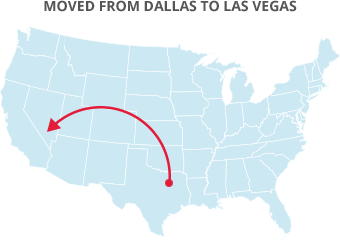

By Julie DeLong, A-1 Freeman Moving Group
 At some point in the life cycle of your business you're going to move your office. A commercial relocation is as stressful for you and your employees as a household goods move, only more so for you since you're responsible for your team's well-being, too. Here are six ways to keep your team motivated and engaged during your office move.
At some point in the life cycle of your business you're going to move your office. A commercial relocation is as stressful for you and your employees as a household goods move, only more so for you since you're responsible for your team's well-being, too. Here are six ways to keep your team motivated and engaged during your office move.Be as honest and transparent as you possibly can with your staff. Let them know the reasons for the move--expansion, cheaper office space, or the need to be closer to infrastructure like railways or airports--and more importantly, make the move public as early as possible. If your move is a result of downsizing, reassure your remaining staff that the move is part of a positive restructuring. Send out a pre-move calendar with important dates--any project deadlines, the days you'll be moving, the days that you will be packing and loading. The more information you provide, the better your team will be able to manage their tasks through to the move date. If something changes in your schedule, spread the word.
Once you've decided to make an office move, gather input from your team--a wish list, if you will--about the location and the kind of office space they'd like. As much as possible, involve your employees in the decision making--these are the people who got you where you are, so their opinions and ideas should matter.
Every company is different, but there are some constants across the board such as--everybody must commute to the office. If you're in a small town, a move isn't such a big deal regarding things like parking garages, public transportation, and traffic patterns as they usually aren't an issue. If those are factors for your employees, you'll need to consider how they impact their ability to get to and from work in a reasonable time, and how and where they park if you're in an urban area where parking is at a premium. Map out everyone's new commute and time, and if you can, offer to help with transit fare or parking fees. Be open to flexible hours or work-from-home days for any employees who face extended commute times.
Research child care and after school care in the new location and offer to help pay any application fees for team members who need to make a change in child care.
It's easy to get caught up in the anxiety and adrenaline rush--to the point that not much work gets done in the run-up to the move. Especially if your office move is long-distance, it's easy to forget the work at hand when you're house-hunting and selling your old house and researching schools and uprooting families. There will be confusion and uncertainty, so give your team some leeway--but be ready to gently get any strays back on track if they start to slip.
Human nature being what it is, there will be some low morale and anxiety in the weeks approaching the move. Again, if your move is long distance this will be more pronounced, so offer rewards for staying focused and productive. Plan packing parties or get-togethers for families on the weekends.
Even in this digital age, an information packet is a wonderful thing to have. The detail of this packet depends on the scale of the move--if it's across town then you won't need to research schools and neighborhoods. For a move that involves moving houses as well as the office, there are the things you'll need to address, such as: neighborhoods, schools, daycare, churches, hospitals/health care, local retail stores (grocery, pharmacy, shopping), restaurants, veterinarians, gyms and after school programs.
Like any move, a commercial relocation is going to be stressful. By following these simple tips, you can alleviate some of that stress and ensure a positive experience that leads to higher employee retention, so that you hit the ground running your first day at the new office.
Request a free quote

